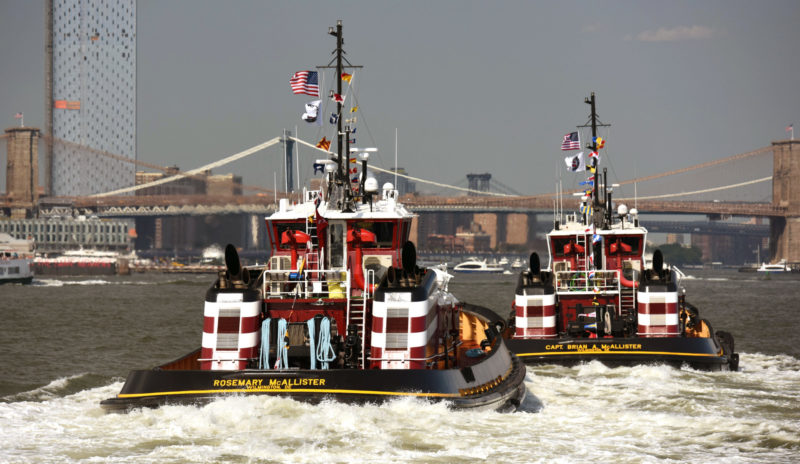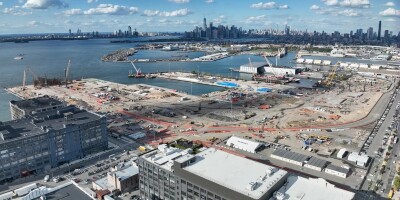Three big players in the tug and barge industry explained today how their companies are preparing and reacting to the rapidly spreading COVID-19 virus, saying they have activated specific protocols from vessel sanitation to banning non-crew on their boats and shoreside operations.
Ketra Anderson, vice president of safety, security, quality and environmental stewardship at Crowley Maritime, Seattle; Marino Hwang, marine compliance manager at McAllister Towing, New York; and Patrick Smith, director of regulatory compliance at American Commercial Barge Line, Jeffersonville, Ind.; shared their company’s plans during a one-hour webinar organized by the American Waterways Operators (AWO) that also included questions from the listening audience.
So far, there have been no suspected or confirmed cases of coronavirus in the inland industry, and so far these industry representatives report no major disruptions to barging operations.
Anderson said that as soon as the outbreak became a serious global threat, Crowley set up a business continuity and command system that touched all divisions. She said daily briefings were called to find out what was happening on vessels and in terminals, and to share new directives and information being distributed by the Coast Guard and the Centers for Disease Control (CDC). Meetings were held with the company’s medical and travel service providers, and all non-essential travel was halted, which was a big challenge for a company with operations across the U.S. and internationally. Training was canceled, and “anything non-essential was taken off the table that requires people to work in groups,” she said, adding that virtual meetings replaced face-to-face sessions. About half of Crowley’s shoreside staff now work from home, except for the dispatch department.
She said further that Crowley has a medical questionnaire that anyone but the crew must answer before going on a vessel or entering a shoreside terminal, and the company is looking to restrict shore leave for crew and considering options for making crew changes. “We work with our procurement department to make sure we have the supplies on vessels and that the crews are trained so they understand the protocol of sanitizing vessels,” Anderson explained, “and we’re looking at options to store vessels in case they go into quarantine.
“We’re charting new territory here, and working hard to manage the protocol for our businesses,” she explained. “Were trying to keep crews from being infected and our vessels operating.”
Hwang said McAllister has developed a policy on infectious diseases that includes immediate actions to address the spread of COVID-19 on vessels and onshore operations, and issued specific safety notices about tele-health services, telecommuting, limiting disease exposure and personal hygiene. “About a month ago, McAllister ramped up its sanitation and food supplies, and is in the process of identifying methods to deliver supplies and food to vessels to minimize contact with people. The company has prohibited non-crew members on board its boats, and daily health checks are performed.”
At ACBL, a “robust training program” is in force, using the company’ existing command center structure. “We put information on all boats,” Smith said, adding that an operations group was formed to deal with medical issues, supplies and transportation of sick individuals and monitoring their illness. A hotline was also launched to answer employee questions. “Our plan has to do with screening, cleaning protocols and incident procedures,” Smith said, adding that one supply challenge of the moment is finding thermometers to check employee temperatures.
Since companies don’t have testing kits to check for COVID-19, Smith said they must treat any flu-like symptoms as the virus. “So in each case, you’ve got to self-quarantine and set up a transport team to decide how to transport” an individual. “It’s a huge challenge, because you don’t have a confirmed case yet.”
Meanwhile, AWO is working with federal agencies like the Coast Guard to suspend in-person vessel inspections, or allow them to be done electronically. AWO is also looking to defer random drug tests by marine employers, and to make sure that mariners are exempt from any shelter-in-place restrictions that could make it difficult for them to get to work.
The association is also speaking to the Department of Homeland Security to avoid complete closure of TWIC enrollment centers so that mariners can continue to get their credential renewals reviewed and credentials issued for new hires in the industry, Caitlyn Stewart, AWO’s senior director, regulatory affairs, said.
Check out the latest on the coronavirus pandemic and the workboat industry here.





